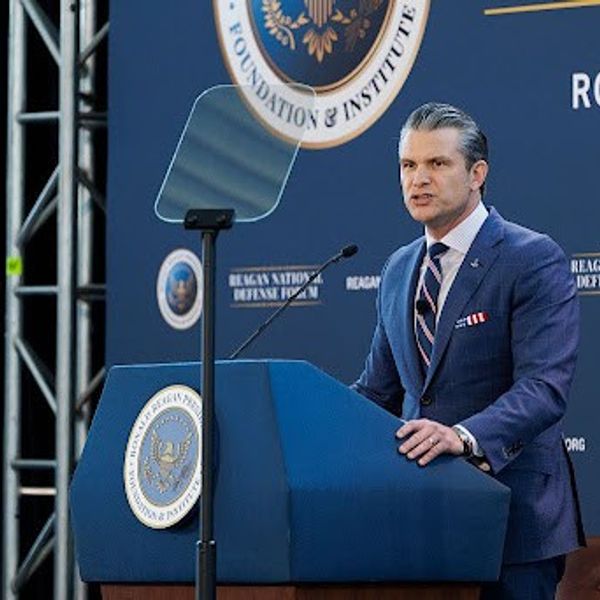As we approach the two-year anniversary of the signing of the landmark nuclear deal between Iran and the P5+1 world powers—the U.S., UK, France, Russia, China plus Germany—The Cipher Brief sat down with network expert General Jack Keane to discuss the likelihood that the deal holds, what could transpire if Iran is caught cheating, and the Trump Administration’s overall approach towards Iran.
TCB: In your view, has the Iran nuclear deal, which was signed in July 2015, worked so far? Has it limited Iran’s capacity to acquire a nuclear weapon?
Jack Keane: It is a horrible deal because Iran has been given over $100 billion, and its strategic objective is to dominate and control the Middle East and to undermine the Sunni Arab states. That has been its strategy since 1980, and it will use that money to do that very thing. We see Iran actively involved in toppling the government in Yemen and working with the Houthis there; propping up Syrian President Bashar al-Assad and his regime in Syria; gaining a significant amount of influence and control with the government in Iraq; and somewhat working, through proxies, to undermine the government in Bahrain. So from that perspective, it’s a horrible deal because this deal is financing Iran’s strategy and ambitions to dominate the Middle East.
TCB: Do you believe Iran is cheating?
Keane: We have to have a fairly healthy suspicion that Iran will do whatever it can to advance itself. Because it has cheated in the past and built unauthorized, secret sites, one has to be very vigilant and also conclude that it is likely doing that again.
TCB: Do you think the nuclear agreement will hold?
Keane: I suspect at some point Iran will be caught cheating, and as a result, it will get sanctioned, and therefore, the deal will come apart. I think that is the likely thing.
TCB: If there is verification that Iran is cheating, has the deal limited our capacity to respond?
Keane: No. If Iran is caught cheating, I suspect that the parties to the nuclear deal would act responsibly and sanction Iran as a result.
TCB: Can you give us a sense of how the Trump Administration is approaching Iran? Does the recent ISIS attack in Iran change the dynamics in U.S.-Iranian relations?
Keane: The recent attack doesn’t change anything at all. U.S. President Donald Trump’s visit to the Middle East was clearly embraced very strongly by the 55 leaders who attended his speech, which included nearly all of the leaders in the Middle East and North Africa. Trump called out the Iranians in that speech, saying they are the number one strategic threat to the region, we must counter the Iranians in addition to Islamic extremism, and we need to form an alliance to combat Iran’s strategy. That was really quite extraordinary. No American President has ever spoken like that. Leaders in the Middle East and North Africa feel very strongly that the U.S. now has their back.
I think that’s why we actually saw at least four Sunni Arab countries break off diplomatic ties with Qatar, because Qatar has ties to the Iranians. I don’t believe they ever would have broken those ties under the Obama Administration, because they would be fearing an Iranian backlash. With the Trump Administration, they know President Trump has their backs, or at least that’s what they believe, and therefore, they were able to take that stand.
TCB: What does Iranian President Hassan Rouhani’s reelection say about the Iranian government’s and population’s desire to engage with the international community?
Keane: I believe the Iranians, after the nuclear deal was concluded, first celebrated and then went back to the business of trying to dominate and control the Middle East using the money they received from sanctions relief. That is their number one objective.
TCB: Are you concerned about the “sunset clauses” in the nuclear deal, which outline the expiration of certain restrictions on Iranian nuclear developments after certain time periods? Where those mistakes to include in the deal?
Keane: Yes, absolutely. I’m concerned about the whole deal, which gives the Iranians a pathway to enrichment and eventually a nuclear weapon. It makes no sense when that was the very reason why you would want to have a nuclear deal with Iran – so that they would not obtain a nuclear weapon.













